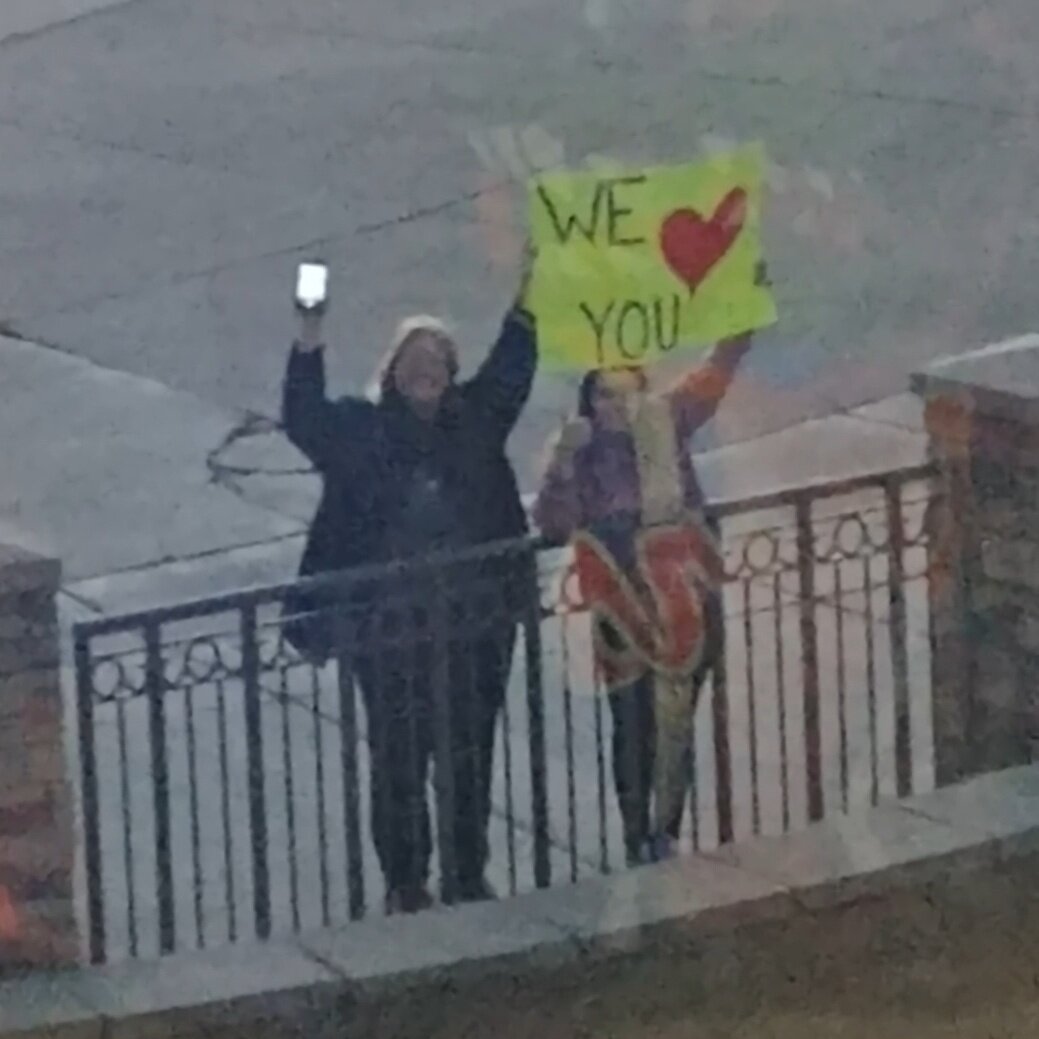Rocky Mountain PBS engineer recounts grueling battle with COVID-19

LONE TREE, Colo. — In late October, Nick Rieth and his wife began to feel a little under the weather. Nick, a broadcast engineer with Rocky Mountain PBS, wasn’t too concerned; he assumed he was experiencing his usual seasonal allergies.
He never imagined that in four days’ time, his whole family would test positive for COVID-19.
While his wife and daughter’s COVID-19 symptoms were thankfully rather mild, Nick’s condition continued to slide into an area of great concern in the days after his positive test result.
What followed was a months-long battle with COVID-19—one that Nick hasn’t entirely recovered from—that included a 13-day stay in the intensive care unit at Sky Ridge Hospital in Lone Tree, Colorado.
“I would say people need to treat this seriously,” Nick said of COVID-19, which to date has claimed the lives of nearly 6,000 Coloradans. “Until you get it, you don’t know how bad it can be.”
Nick shared this story with his Rocky Mountain PBS colleagues on a Zoom staff meeting. He made a promise to the nurses who cared for him that he would share his COVID-19 experience with as many people as possible.
Related Stories
Nick and his family first tested positive for COVID-19 on October 24. Five days later, struggling to take in a full breath of air, Nick went to the emergency room, but was discharged because his condition was not severe enough (state data show that more than 80% of the state's hospital beds were in use at the time).
Nick returned to the ER on October 31, two days after his first visit. This time, he stayed for 16 consecutive days, mostly in the ICU.
When Nick was in the emergency room, doctors found that his blood oxygen levels were in the 85-89% range (normal levels are between 95-100%). The lowest his blood oxygen level dipped to was a very concerning 59%.

“It was equivalent to being in a swimming pool and you dive down into the deep end,” Nick explained, “and you’re running out of breath trying to get back to the surface.”
At one point, Nick told his wife he thought he might not make it. “The whole experience was much more severe than I ever thought it would be,” he said.
Nick was officially diagnosed with acute hypoxemic respiratory failure with COVID pneumonia.
“There were a lot of times where I would be breathing okay and then all of a sudden my blood oxygen levels would just drop,” Nick recalled. “There was no warning of that, and so those times were kind of scary because sometimes it took a little while to recover from that.”
In total, Nick spent 29 days in the hospital over the course of three different visits. He was released from the hospital for the last time on November 29.
Now, in early February, Nick is still feeling the effects from his battle with the virus. He experiences shortness of breath after long walks or even just going up the stairs.
“It could have very easily gone the other way for me,” Nick said. “It’s the closest I’ve felt to the factor of ‘I may not survive this.’ And I hope nobody ever has to have that feeling.”
